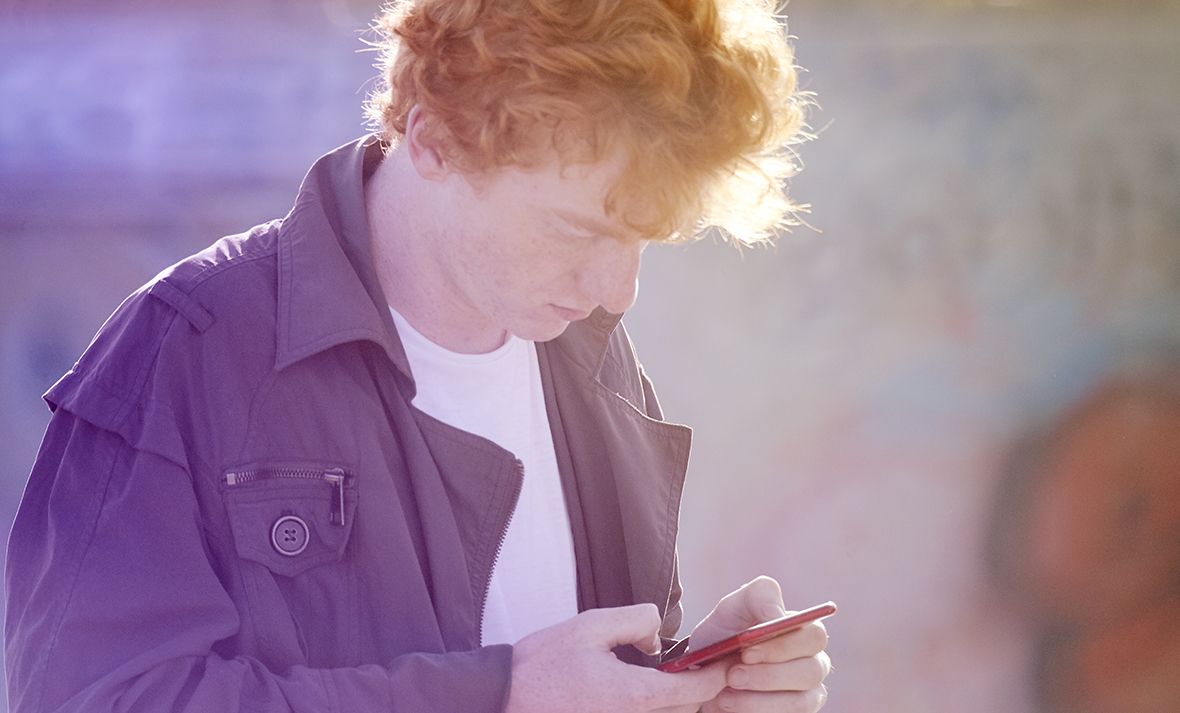The silent struggle: Understanding loneliness in today’s world

In a world more connected than ever, a paradox has emerged. A new report from the Groundswell Foundation, based on research by Professor Brock Bastian, reveals that young people aged 16-25 are the loneliest group in Australia with nearly two in five feeling lonely and more than one in five experiencing it frequently. This mirrors findings from Headspace’s National Youth Mental Health Survey which found that nearly two-thirds of young people feel lonely or left out. It’s a silent struggle, often hidden beneath the surface of bustling school and university campuses and active online Social Media profiles.
Even though lockdowns and restrictions are behind us, many young people are still feeling the aftereffects. They’re struggling to reconnect with others and are feeling isolated. Feeling lonely can have a profound impact on a person’s mental and physical health. It’s a key risk factor for mental illness, with young people who report loneliness also being more likely to experience psychological distress, anxiety, or depression.
At the Harrison Riedel Foundation, we’re dedicated to tackling modern loneliness, and it all starts with understanding its complexities. This understanding is the foundation of our work, and a significant reason why we created the free YourCrew App.

Why the rising tide of loneliness?
To get to the root cause, we must first understand why feelings of loneliness among young people have increased in recent years. There isn’t a single issue to pinpoint, rather a combination of social and cultural shifts, many of which have been amplified in the post-pandemic world.
The COVID-19 pandemic led to an extended period of social isolation, which was particularly challenging for young people who rely on in-person connections for social development. Even though restrictions are now a thing of the past, there are flow-on effects with many young people reporting they are still struggling to regain social skills, overcome social anxiety, and re-establish friendships that may have weakened. According to the Groundswell Foundation Connection Matters report, regional youth, women, neurodiverse young people, and those without access to education or employment are at higher risk. Additionally, with a push towards online learning, young people who are in a university environment and taking classes virtually are also missing out on the organic opportunities for social bonding that are crucial during the formative years of young adulthood.
Simultaneously, the rise of Social Media, while offering a sense of connection, often contributes to feelings of loneliness. Interactions online can be curated and superficial, lacking the depth and authenticity of face-to-face relationships. The constant comparison with others’ highlight reels can fuel feelings of inadequacy and further disconnect, despite being “connected” to hundreds or even thousands of people. While Social Media platforms can be valuable tools for maintaining existing relationships, they don’t always provide the same level of emotional fulfilment as in-person interactions.
Other issues, such as the rise of “hustle culture” promotes constant work and productivity, often at the expense of personal relationships; the rising cost of living; and life transitions that come with finishing school, entering university or starting a new job can disrupt existing social networks and make it difficult for young people to afford social activities. These issues can all lead to social withdrawal and feelings of loneliness.
Deciphering the difference: Social isolation vs. loneliness
What’s crucial to understand when addressing issues of loneliness in young people is that not all people experiencing loneliness are socially isolated. Social isolation is a measurable concept; it refers to a lack of social contact and fewer social relationships. Loneliness, on the other hand, is a subjective feeling; it is the distress caused by a discrepancy between one’s desired and actual level of social connection.
You can be socially isolated, with few friends or infrequent social interaction, yet feel fulfilled if you are content with your level of connection and have a strong sense of self-sufficiency. Conversely, you can be surrounded by people, actively engaged in social activities, and still experience profound loneliness if those connections lack depth, meaning, or emotional intimacy. You might have hundreds of online friends, but yearn for a genuine heart-to-heart conversation.
Similarly, someone with a small, tight-knit network of deeply supportive individuals might not have a wide circle of acquaintances but feel incredibly connected and content, thus not experiencing loneliness despite being objectively less socially connected.
The key to overcoming loneliness is to start by taking small steps to get support and reconnect with the people and activities you care about.

The power of connection: YourCrew’s philosophy
At the Harrison Riedel Foundation, we believe genuine connection is the key to reducing the isolation many young people feel. Young people don’t lack the desire to connect – they face barriers to maintaining meaningful, supportive relationships in a world where face-to-face contact isn’t always possible.
YourCrew was designed to keep those positive connections alive. It allows conversations to continue seamlessly, so young people feel they can still talk about issues and reach out for help even if they haven’t seen someone in person for a while. When they do reconnect, they can pick up easily, with no loss of trust or continuity.
The app strengthens these existing relationships by guiding both sides with resources and advice on what to say, where to go, and what to do. This helps Crew members feel more confident supporting each other and ensures that, if professional help is needed, young people can be linked quickly and safely without delay. YourCrew also includes wellbeing tools such as a mood tracker, journal, and links to professional services, offering a practical pathway to help and easing the burden of worry for those who care.
Unlike social media, YourCrew isn’t about likes, followers, or comparison. It focuses on nurturing real connections with people you already know and trust, offering a safe, accessible way to stay connected and supported.
Loneliness among young people is a complex issue with many causes; however, we believe the fundamental solution lies in fostering genuine human connection. It’s about creating a world where no young person feels they have to face their struggles alone.
Did you find this blog useful?
Consider a donation to the Harrison Riedel Foundation today to help more young people access the right support at the right time.